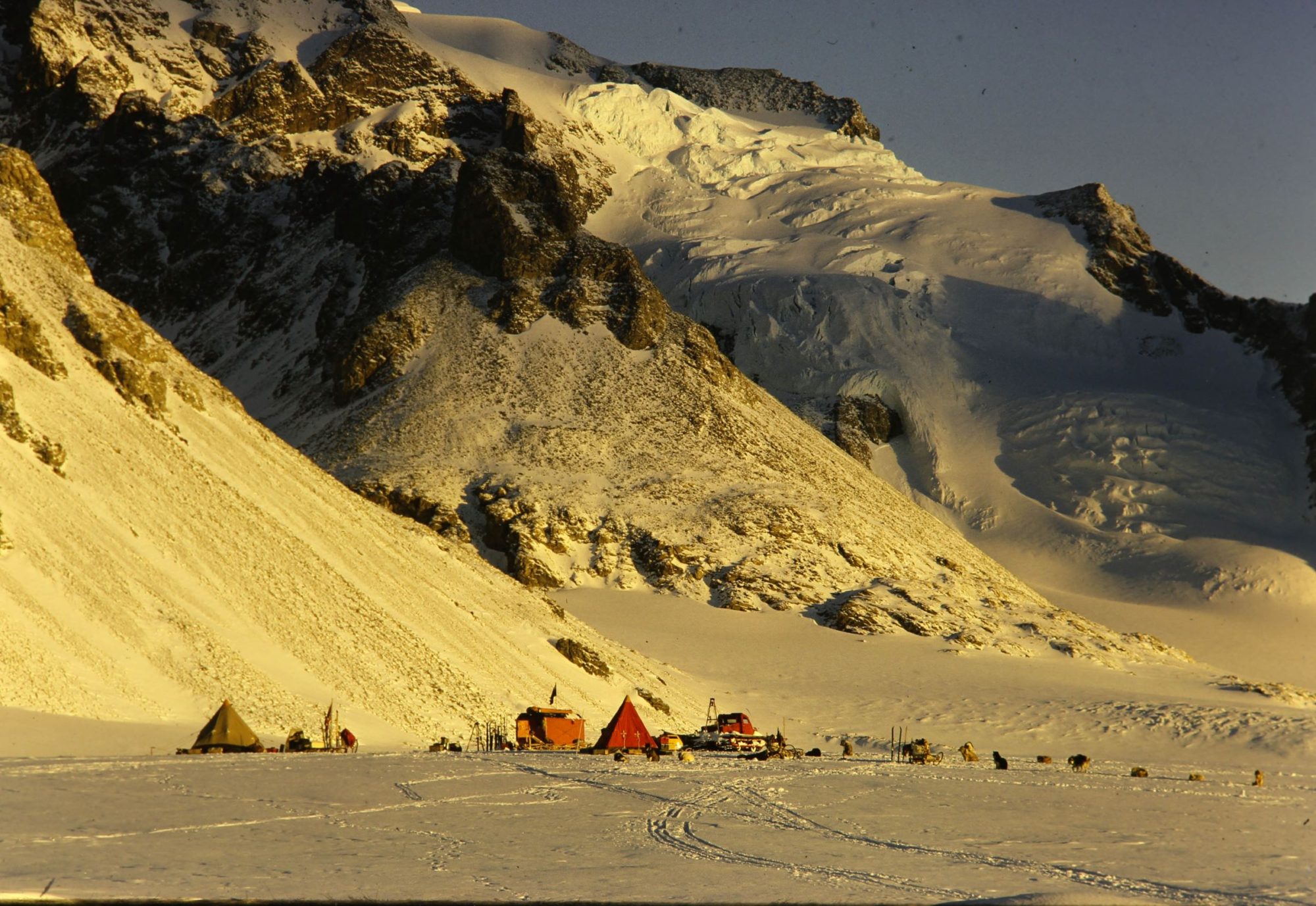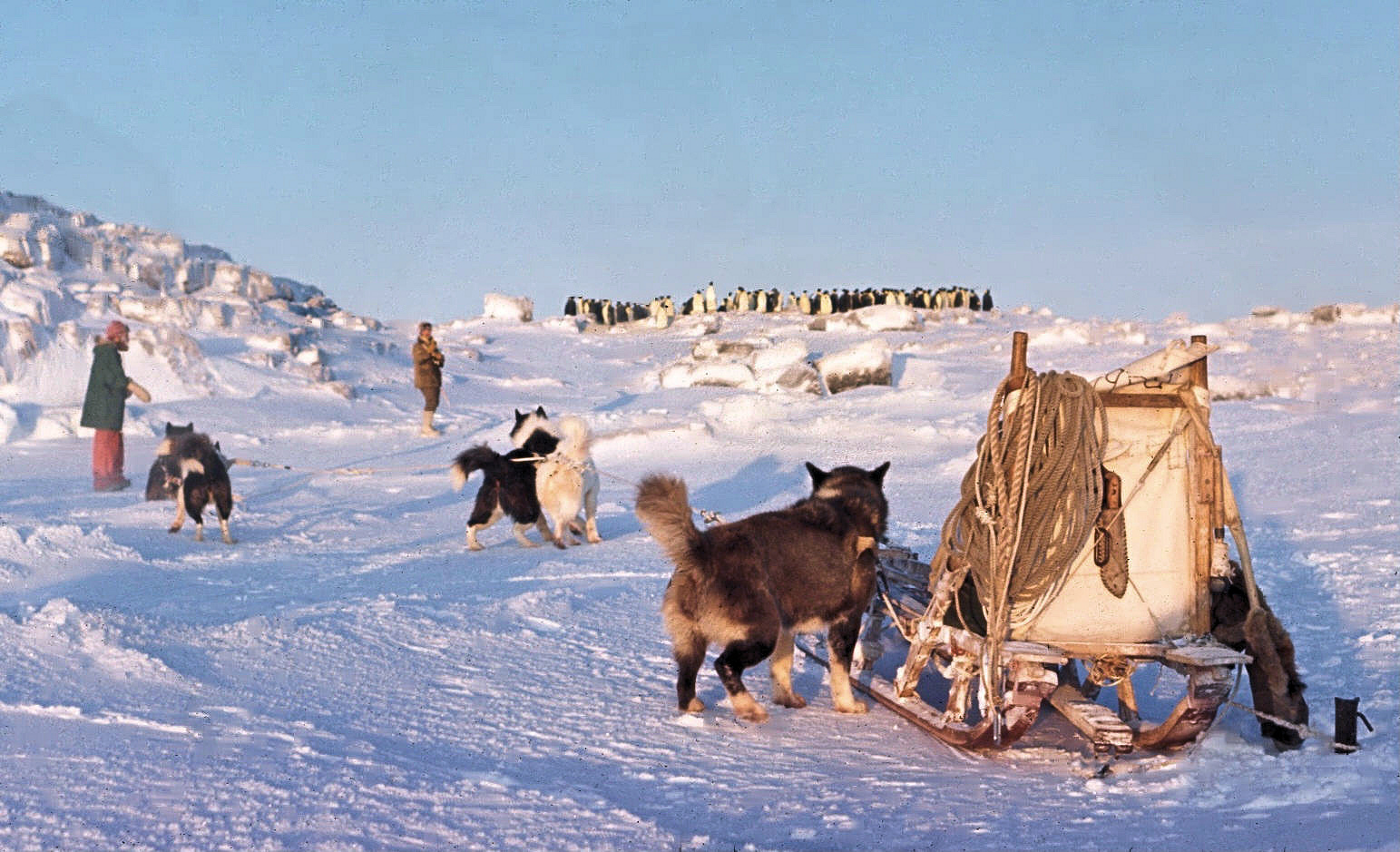“With Dick Bird, Steve Wormald and Bill Taylor left base about 1100, running to the Chileno Refugio on Avian Island, then across the island to the holiday rest-centre camp, just south of the Argentinian Refugio…After about ten minutes of shouting, Ian (Willey) was seduced from his pit, and since the weather was exceptionally fine …we set off towards the Dions… to put in a good trail as far as possible, according to the amount of day-light available and the state of the weather… the sea ice conditions looked to be very good… since there had been fast ice off the base after mid-April.
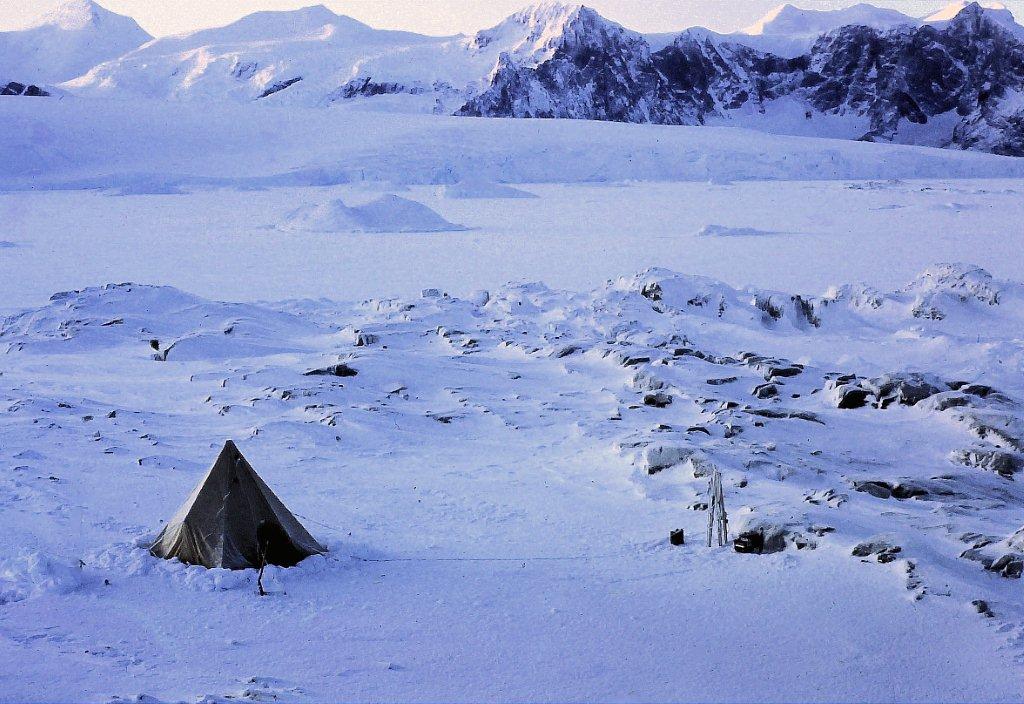
We set off from Avian at 1220, running about half a mile east to skirt a large balloon of salty ice, and after reaching a grounded berg which would make an easily recognisable trail marker, set off southwards in a bee-line for the Dions. The dogs were working extremely well, and by running hard, we covered a good 5 miles in the first hour, in spite of a 1.5 mile section of very young (and therefore very sticky) ice. But now the surfaces were quite fast; the ice being sound, deep in snow and without leads, cracks, holes or pressure ridges…We abandoned the plan of trail laying in favour of completing a trip to the Dions… at this range very distinct (5 miles), particularly Emperor Islet, which is the highest of the group.”
The Dion Islets possessed the only Emperor Colony in Western Antarctica. It was only the third such colony to be found – by Stonington sledges in the mid-1940s. But because it is an isolated group, laying 10 miles off-shore, it is a serious undertaking to sledge there (see Horseshoe in 1958) and had been rarely visited because it is exposed to strong winds from any given direction, and therefore carries the risk of ice breaking up and being swept out to sea.
The Report continues:
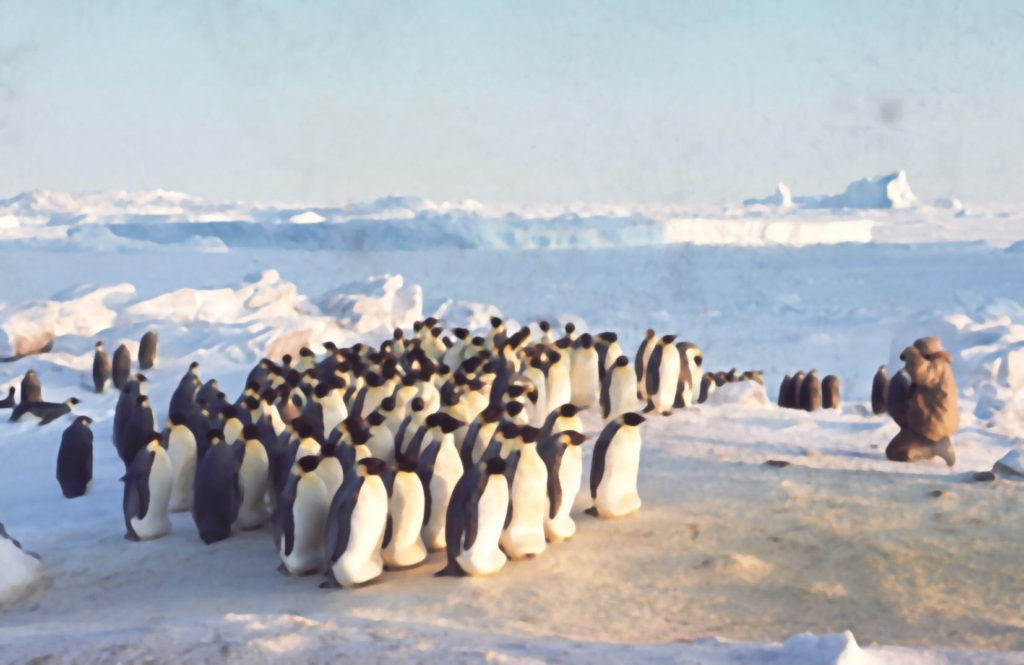
“The rookery lies on a low neck of land at the SE extremity of the islet (i.e. Emperor Islet) joining the highest section to a small, rocky knoll on which the depot is situated.

The sun having topped the Fuchs Ice Piedmont the previous day, we ran on in sunshine, keeping good time and reaching the Emperor penguin rookery in 1hr and 40 minutes after leaving Avian. A few small cracks and leads were crossed about 1.5 miles N of the islets.
…We allotted only half an hour to our stay, and this was spent in photographing and counting the penguins, as well as inspecting the depot. About 200 birds were present, almost all with eggs.

“… Within 25 minutes we were returning to base …we had been very lucky because we estimated that the sun would only have fallen on the rookery for the previous couple of days – to be borne in mind if future photographic visits are anticipated. With tracks all the way back to base, good time was made, and to conserve energy, we were taking it in turns to ride the sledge…just before reaching Avian, Shrimpie collapsed with cramp and so was taken onto the sledge until she recovered. The return to base took 2hrs 20 minutes. The total distance covered was about 20 miles”.
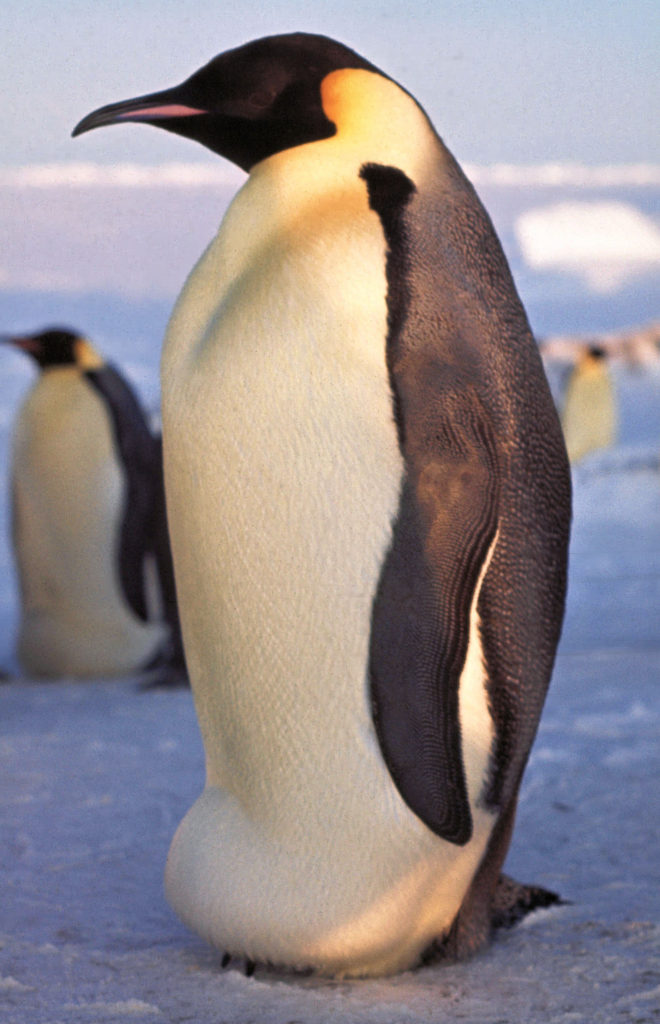
Having run for most of the day, we were all tired. My only real physical consequence was a chafed bottom, but what we had experienced made that a small price to pay. When I reported on the Dions trip in a letter home, I tried to put the distance we had run into a comprehensible perspective by comparing it to “running across the English Channel on sea ice”. When we spanned out the dogs, we made the mistake of assuming that they were tired too. But they were not tired enough to prevent Mary turning on Rita (who was carrying pups) resulting in a glorious scrap on arrival at the dog spans. Although another Dions visit was planned, hopefully to see Emperor chicks, it never materialised. At first it had to be put off because the weather never looked stable enough, but later it had to be put off for good because Rita was too close to pupping and her absence would have left too big a hole in the team’s performance.
